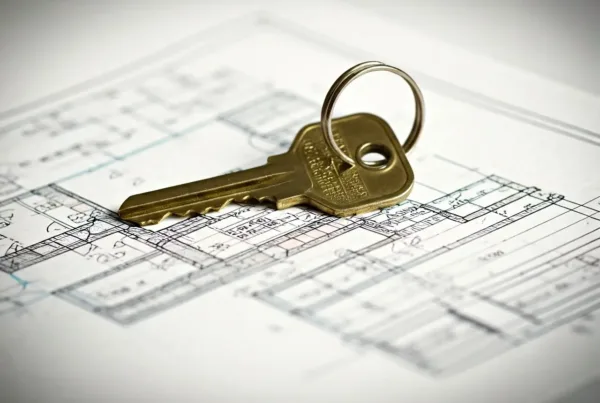Navigating the housing market can be tricky, but for those who qualify, housing assistance programs can offer some much-needed support. If you’re wondering how these programs might influence your home-buying experience, you’re in the right place. Let’s explore how various types of housing assistance can affect your options and help you make the most informed decision possible.
What is Housing Assistance?
Housing assistance refers to a range of programs designed to help individuals or families manage the financial aspects of acquiring a home. Whether you’re looking to rent or buy, these programs can offer substantial support in easing the burden of housing costs. For many, understanding the exact nature and benefits of housing assistance can be the first step toward securing a stable living environment.
One major component of housing assistance is rental support, often provided through vouchers such as those offered by Section 8. These vouchers can cover a significant portion of rental costs, making it feasible for individuals with lower income to live in better housing conditions.
Aside from rental aid, housing assistance can also include grants or loans aimed at helping with the down payment for a home. This is particularly beneficial for first-time homebuyers who may be struggling to save enough while covering everyday expenses. Programs backed by institutions like FHA loans offer a lifeline to potential buyers, reducing upfront payments and smoothing the path to homeownership.
Types of Housing Assistance Programs
When exploring housing assistance, you’ll encounter various programs tailored to meet different needs. Programs like Section 8, which issues vouchers, are essential for those requiring immediate rental help. These vouchers allow recipients to choose housing that is otherwise beyond their financial reach.
For prospective homeowners, especially first-time buyers, programs such as FHA loans provide a more accessible route to buying a property. These loans offer lower down payments and more manageable interest rates, reducing the financial pressure on the buyer.
In addition, down payment assistance programs can give homebuyers the initial push needed to purchase a home. These programs often require applicants to meet specific income criteria, ensuring aid is directed to those most in need. By reducing the upfront cash required, down payment assistance opens new doors for many potential buyers.
Federal and state grants are also available to support homebuyers, often targeting specific groups such as veterans, teachers, or low-income families. Examples include the Good Neighbor Next Door program, which assists teachers, police officers, and firefighters in purchasing homes at a significant discount.
Eligibility Criteria for Housing Assistance
Eligibility for housing assistance programs can depend on various factors including income and family size. Typically, applicants must demonstrate a need based on their current financial situation. For programs like Section 8, income thresholds are strictly adhered to, ensuring only those genuinely in need receive aid.
For loan and grant programs, credit scores may play a crucial role. FHA loans, for example, are accessible to those with lower credit scores compared to conventional loans. However, maintaining a healthy credit record still increases your chances of securing assistance.
Other factors such as employment status, debt-to-income ratio, and prior homeownership can influence your eligibility. It’s critical to review specific criteria for each program as they can vary significantly, allowing you to align your application with the most suitable option.
Impact of Housing Assistance on Buying Power
Utilizing housing assistance can significantly enhance your buying power, allowing you to consider homes that might otherwise be financially inaccessible. Through programs like HUD.gov, you gain access not only to funds but also to guidance on making your home purchase a reality Buying a Home.
Lower interest rates tied to certain assistance programs can reduce your monthly mortgage payments considerably. This allows you to allocate funds toward other essential expenses, freeing up cash flow and providing financial stability.
Additionally, down payment assistance can directly affect the scale and range of properties you can target. With less money required upfront, you can entertain broader options, from different neighborhoods to various home styles, without overextending your budget.
Steps to Apply for Housing Assistance
Applying for housing assistance typically begins with assessing your eligibility. Collect necessary documentation such as proof of income, tax returns, and credit reports to substantiate your application. These documents provide a clear picture of your financial status to the relevant authorities.
Once your paperwork is in order, fill out application forms for programs that best match your circumstances. This might involve multiple applications if you’re seeking both rental and home-buying support. Ensuring accuracy and completeness in these forms is crucial to avoid delays.
Engaging with housing counselors can offer additional support, guiding you through the various options available and helping in the preparation of your application. Many agencies provide such counseling as part of their services to bolster your chances of successful applications.
Common Challenges and How to Overcome Them
A frequent challenge when applying for housing assistance is meeting the strict eligibility criteria. Thoroughly understanding the requirements of each program can mitigate the risk of application denial. Prepare all documentation meticulously and consult with housing counselors to ensure you meet the necessary standards.
Another potential hurdle is the lengthy and complex application process. Break down the task into manageable steps, tackling one form or requirement at a time. This focused approach will not only reduce stress but also improve the accuracy of your submissions.
Lastly, competition for limited assistance funds can be intense. Staying informed about application deadlines and being proactive in your approach will increase your chances of securing the aid you need. Consistent communication with program administrators can also keep you updated on any changes or additional opportunities for assistance.
Final Thoughts on Housing Assistance and Buying Options
Understanding how housing assistance affects your buying options can empower you to take meaningful steps towards homeownership. By comprehending the different types of assistance available, knowing your eligibility, and preparing adequately, you’ll find yourself better equipped to embark on this significant life milestone with confidence.







